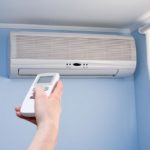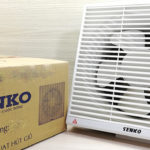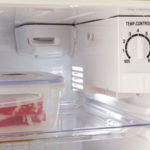With its cooling capabilities, an air conditioner has become an essential item in households, especially in urban areas, helping people to “survive the summer” easier. It is also the most power-consuming device in the household.
To keep the electricity bill from soaring too high, many families try to maximize energy savings when using the air conditioner, including turning it off when the room has reached a cool enough temperature. They believe that this is a smart way to not only reduce energy consumption but also extend the lifespan of the machine by reducing operating time. Is this true?
Does turning off the air conditioner when the room is cool enough save electricity?
In fact, this method not only does not save electricity or increase the lifespan of the machine but also causes the electricity bill to skyrocket and the machine to break down faster.

Does turning off the air conditioner when the room is cool enough save electricity? The answer is no, in fact, the electricity bill increases significantly. (Image: The National)
Every time you turn on the air conditioner again, the device needs to operate at a higher power than when it is running regularly to start the compressor and fan motor, quickly cooling the room to the temperature you set. In other words, the air conditioner will consume about 3 times more electrical energy for continuous on-off operation to maintain the ideal temperature that you “command” it to.
Furthermore, this habit also affects the operational efficiency of the air conditioner and significantly reduces its lifespan.
Answering on Vnexpress, Mr. Pham The Vu, Faculty of Electrical Engineering, Hanoi University of Industry, said that air conditioners are divided into two types: Non-inverter air conditioners (non-energy-saving) and inverter air conditioners.
With non-inverter air conditioners, when the room temperature reaches a value 2-3 degrees Celsius lower than the set temperature, the machine will automatically turn off the outdoor unit and only run the indoor unit’s fan. At this time, the electricity cost is equivalent to that of a regular fan. When the room temperature is higher than the set temperature by 2-3 degrees Celsius, the machine will automatically start the outdoor unit. The electricity cost is equal to the capacity of the machine.
As for inverter air conditioners, the machine will continue to operate but adjust the cooling temperature to maintain the set room temperature and minimize energy consumption.
Therefore, you should not turn off the air conditioner when the room is cool enough. Instead, to save electricity, you should adjust the room temperature to an appropriate level (about 25-27 degrees Celsius), limit heat exchange between the room and the outside, and minimize heat sources in the room.
Tips for using air conditioners to save electricity and be good for your health
To save electricity and not have a negative impact on health, experts recommend maintaining the air-conditioned room temperature at around 25-27 degrees Celsius or adjusting the room temperature to be 5-7 degrees Celsius lower than the outside temperature.
If the outside temperature is 32 degrees Celsius, you should set the air conditioner at 25-27 degrees Celsius.
Another way is to simultaneously operate the air conditioner and fan. Many people think that operating both devices at the same time will consume more electricity, but it is not true. The fan helps to evenly distribute the air flow, and the air conditioner only needs to perform one task, which is cooling; the machine works less, so its lifespan and productivity are higher, and it consumes less electricity.
According to VTC News





































